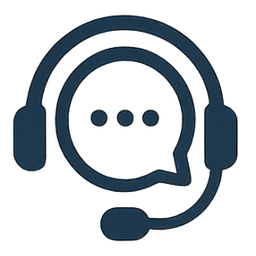The landscape of customer experience is undergoing a profound transformation, with each industry striving to redefine what exceptional service looks like in an increasingly digital world. As we approach 2025, the healthcare sector is particularly focused on evolving with these changes to enhance patient satisfaction and engagement. With advancements in technology and a growing demand for personalized care, understanding the benchmarks for customer experience in healthcare becomes crucial. This article delves into the expected customer experience benchmarks for the healthcare industry, detailing strategies to meet these standards and highlighting how healthcare providers can stay ahead in this competitive arena.
The Importance of Customer Experience in Healthcare
Unlike other industries, healthcare deals with sensitive and critical life situations, making customer experience an indispensable part of the service delivery. Patients are becoming more informed and empowered, often comparing healthcare experiences to those in retail or hospitality. Enhanced customer experience in healthcare translates into improved patient outcomes, higher patient retention rates, and a stronger brand reputation. As healthcare systems become more patient-centric, it is vital to establish benchmarks that not only meet but exceed patient expectations.
Personalization : A Cornerstone of Healthcare Customer Experience
By 2025, personalization will be the gold standard in healthcare. With patients expecting customized treatment plans and communication tailored to their individual needs, healthcare providers must leverage data analytics and AI technologies to deliver personalized experiences. For example, patient portals that provide personalized health tips, appointment reminders, and tailored content play a significant role in enhancing the patient journey. Trusted healthcare providers will be those that seamlessly integrate patient data to tailor every aspect of the care experience from pre-visit to post-care.
Efficiency and Accessibility : Leveraging Technology
Efficiency and accessibility are becoming imperatives in the quest for superior customer experience in healthcare. Patients expect quick, easy access to care and resources, and technology plays a pivotal role in delivering this. Telemedicine, for instance, is a growing trend that enhances accessibility by allowing patients to consult doctors from the comfort of their homes. Additionally, self-service kiosks in clinics and hospitals streamline check-ins and reduce wait times, significantly enhancing the customer experience. Embracing cutting-edge technologies like mobile health applications and virtual health assistants will be crucial benchmarks.

Patient-Centric Communication : Building Trust
Effective communication is foundational to patient satisfaction and trust in healthcare. As we advance, the benchmark for communication will be twofold: proactive engagement and empathetic interaction. Healthcare providers are expected to maintain open lines of communication with patients, whether through regular updates, follow-up calls, or digital communication platforms. Importantly, fostering a culture of empathy where healthcare professionals actively listen to patients’ concerns and preferences will enhance the overall experience. Emerging technologies such as AI-driven chatbots can assist in providing consistent and empathetic communication, ensuring a seamless flow of information.
Data Privacy and Security : A Non-Negotiable Benchmark
As healthcare organizations increasingly rely on digital solutions to enhance customer experience, maintaining the utmost standards of data privacy and security will be non-negotiable. With growing concerns about data breaches and privacy violations, patients expect their sensitive information to be well protected. Healthcare providers will need to implement strong cybersecurity measures and transparent privacy policies, ensuring patients feel secure in sharing their personal health data. Adhering to regulations like HIPAA (for US-based providers) and investing in robust security infrastructure will be critical to building trust and driving patient engagement.
Continuous Feedback Mechanisms : Enhancing Service Delivery
In 2025, real-time feedback will be a critical benchmark for assessing and improving customer experience. Continuous feedback loops, facilitated through surveys, patient reviews, and web forms, offer valuable insights into patients' perceptions and expectations. Healthcare providers can use this feedback to identify areas of improvement and refine their services, ensuring that patient needs are consistently met. This agile approach to feedback not only enhances service delivery but also signals to patients that their opinions are valued and will be acted upon.
Conclusion
As we chart the course toward 2025, healthcare providers must prioritize customer experience as a key driver of success. By focusing on personalization, leveraging technology for efficiency, fostering empathetic communication, ensuring data security, and maintaining robust feedback mechanisms, healthcare facilities can set benchmarks that resonate with patient needs and expectations. Ultimately, those who lead with a patient-centric approach will not only meet the industry benchmarks but also set new standards for excellence, fostering a healthcare system where patients are truly at the heart of everything. By embracing these strategies, healthcare organizations can not only survive but thrive in an increasingly competitive landscape.








